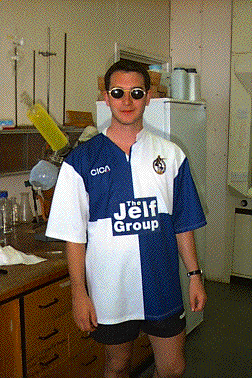
Development of Polyketide Biosynthesis Inhibitors

ACPs from type II PKS complexes are able to catalyse the transfer of acyl moieties from acyl-CoA onto their own prosthetic phosphopantetheine group without the need for a specific transferase enzyme. This reaction is unprecedented. The ACPs show high selectivity for b-dicarbonyl groups, transferring malonyl, acetoacetyl and methyl malonyl groups with ease, and succinyl more slowly. Other groups are not transferred this way. This project is investigating the structural basis for the transferase activity. Selective mutations of buried arginine residues and surface threonine residues of act ACP have been made. Investigations currently underway to investigate the self-loading properties of the mutant proteins should reveal the basis for the transfer mechanism and the selectivity. Altering substrate selectivity could allow the development of PKS systems producing novel structures. Synthetic chemistry is aimed at probing the importance of the CoA moiety of the acyl-CoAs. Several cut-down and modified acetoacetates have been synthesised and investigations of their interactions with the act ACP are underway. The development of specific ACP inhibitors is a distinct possibility; these compounds could prevent pathogenic organisms from producing polyketide derived mycotoxins etc.
...Mr James Westcott. Ph.D. Student 1997-2000.